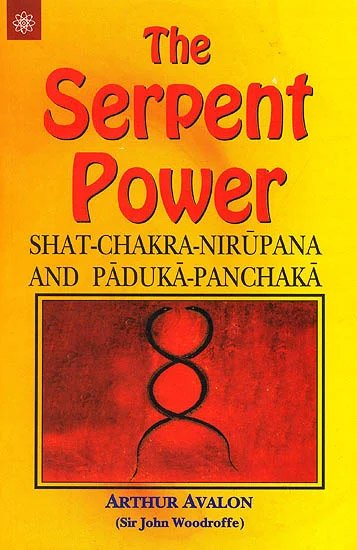Shat-cakra-nirupana (the six bodily centres)
by Arthur Avalon | 1919 | 46,735 words | ISBN-10: 8178223783 | ISBN-13: 9788178223780
This is the English translation of the Shat-cakra-nirupana, or “description of the six centres”, representing an ancient book on yoga written in the 16th century by Purnananda from Bengal. This book investigates the six bodily centres famously known as Chakras. The text however actually forms the sixth chapter of the Shri-tattva-cintamani, compiled...
Verse 18
Sanskrit text, Unicode transliteration, Word-for-word and English translation of verse 18:
स्वाधिष्ठानाख्यमेतत्सरसिजममलं चिन्तयेद्योमनुष्यस्तस्याहंकारदोषादिकसकलरेपुः क्षीयते तत्क्षणेन ।
योगीशःसो'पिमोहाद्भुततिमिरचये भानुतुल्यप्रकाशो गद्यैह् पद्यैः प्रबन्धैर्विरचयति सुधावाक्यसन्दोह लक्ष्मीः ॥ १८ ॥svādhiṣṭhānākhyametatsarasijamamalaṃ cintayedyomanuṣyastasyāhaṃkāradoṣādikasakalarepuḥ kṣīyate tatkṣaṇena |
yogīśaḥso'pimohādbhutatimiracaye bhānutulyaprakāśo gadyaih padyaiḥ prabandhairviracayati sudhāvākyasandoha lakṣmīḥ || 18 ||He who meditates upon this stainless Lotus, which is named Svādhiṣṭhāna, is freed immediately from all his enemies,[1] such as the fault of Aha kāra[2] and so forth. He becomes a Lord among Yogīs, and is like the Sun illumining the dense darkness of ignorance.[3] The wealth of his nectar-like words flows in prose and verse in well-reasoned discourse.
Commentary by Śrī-Kālīcaraṇa:
In this verse is described the benefit derived from the contemplation of the Svādhiṣṭhāna Lotus.
“Svādhiṣṭhāna”.—“By Sva is meant the Para-Liṅga (Supreme Liṅga), and hence the Lotus is called Svādhiṣṭhāna.”[4]
“Fault of Ahaṃkāra and so forth” (Ahaṃkāra-doṣādi).—By this is implied the six evil inclinations: Kāma (lust), Krodha (anger), etc. These six,[5] which are the six enemies of Man, are destroyed by contemplation on the Svādhiṣṭhāna Lotus. By contemplation upon it are also destroyed the darkness of Māyā, and Mohā,[6] and the Sun of knowledge (Jñāna) is acquired. The rest is clear.
Footnotes and references:
[1]:
That is, his enemies the six passions.
[2]:
Egoism. See Introduction.
[3]:
Moha.
[4]:
This is from v. 58 of Ch. XXVII of the Rudra-yāmala.
[5]:
Viz., Kāma (lust), Krodha (anger), Lobha (greed), Moha (delusion), Mada (pride), Mātsaryya [Mātsarya] (envy), which all arise from a sense of mineness (Ahaṃkāra).
[6]:
Ignorance, illusion, infatuation.
